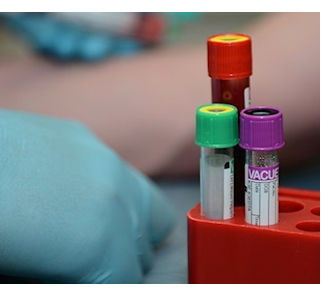Ac-cen-tu-ate – the Negative?

It’s time to take a trip with the Way-Back Machine to a song many of us heard when we were kids – because our parents played it on the radio or record player. We all sang along!
With lyrics by Johnny Mercer, and sung by Ella Fitzgerald (that’s Ella in the photo above), the song “Ac-cen-tu-ate the Positive” became popular in the mid-1940s, with its very (yes) positive message of how we should focus our lives.. on the positive side, of course.
So, of course, leave it to the healthcare system to ask us to think VERY differently about how that word “positive” is used… because when it comes to medical test results, “positive” is probably NOT a good thing.
In other words, if your doctor sends you for a test, you probably do NOT want those results to come back as “positive.”
Why? Because positive test results indicate that you have developed, or do suffer from, or are the victim of, whatever you were tested for. Examples:
- If you are tested for Lyme Disease, and the results are positive, then yes, you do have Lyme Disease.*
- If you are tested for diabetes, and the results are positive, then yes, you do have diabetes.*
- If you get an MRI for a tumor, and the results are positive, then yes, you do have a tumor.*
None of those diagnoses are positive news for anyone!
Conversely, if the test results come back negative, then whatever your doctor suspected he or she would find, was not found. That is usually a positive outcome, even if the medical system calls the results “negative.”
Why do we say “probably not a good thing” instead of “definitely not a good thing?” Because sometimes getting an answer is a good thing, even if the answer isn’t something you wish it would be. If you have strange symptoms and the test results are positive – then you finally have a name for those strange symptoms, and possibly a treatment way forward, which may feel like a good, positive thing even if you would not want that diagnosis. If your test results are negative, then you don’t have a name for your symptoms, and probably no easily determined treatment either. That might feel frustrating, a negative emotion.
*That little asterisk up there next to those diagnoses represents an important – very important – step that all newly diagnosed patients must do for themselves. That is – get a second opinion. One doctor and one set of test results do not a definitive diagnosis make!
If you are told you have a specific disease or condition, and it
-
- requires treatment that elicits difficult side-effects
- or requires any sort of long term or life long treatment
- or requires invasive treatment (surgery, chemo, radiation, biologics)
… then you MUST get a second opinion. If you find yourself needing a second opinion, then it’s time to contact the professionals who can help you get one that is objective, along with additional treatment options for you to consider. Too many doctors are friends or colleagues, and will confirm a diagnosis rather than upset a colleague by providing an objective, fully considered second opinion.
Many thanks to Ella Fitzgerald and Johnny Mercer for helping us understand that it’s a good thing to accentuate the positive!
Then, as a smart patient, remember, it’s important to understand that when it comes to positive or negative test results, we need to be clear on exactly what that means.
Learn more about understanding your test results.
Find a Health / Patient Advocate or Navigator
Learn more about AdvoConnection and The Alliance of Professional Health Advocates
